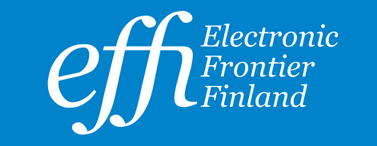4 November 2003
Press release
For immediate use
A coalition of technical, legal and political experts has today launched a
campaign to ensure that electronic voting can be trusted by voters and
politicians across Europe.
Voters and candidates must be able to feel certain that voting intentions
are accurately recorded. If any doubts do arise then all stakeholders must be
able to verify and audit all aspects of the election. Without these
protections, debacles such as the count of votes in the US presidential
elections of 2000 are likely to be repeated on this side of the Atlantic. This
could destroy voter trust in the electoral system and politics more widely.
Computerised voting is inherently subject to programming error, human error,
equipment malfunction and malicious tampering. Due to the opaque nature of the
technologies involved, which few understand, it is crucial that electronic
voting systems provide a voter-verifiable audit trail. This is a permanent
record of each vote that can be checked for accuracy by the voter before the
vote is submitted, and is difficult or impossible to alter after it has been
checked. This must be achieved without compromising the secrecy and integrity
of the ballot.
E-voting systems lacking these safeguards are being rushed upon voters
across Europe with little regard for the risks and the costs to our
democracies. The UK has held e-voting trials in local government elections, and
will hold more as part of the 2004 European elections. France, Spain and
Ireland have also held trials. E-voting is already established in Belgium and
Switzerland. The European Commission is looking at introducing e-voting across
the EU, and the Council of Europe is developing guidelines for elections
involving e-voting.
The campaign is calling on all concerned European citizens to sign up to a
resolution demanding a voter-verifiable audit trail. This can be done online at
the following address, which also contains more information on these issues: http://www.free-project.org/resolution/
Jason Kitcat, one of the campaign founders, said: “This is an issue which
needs to gain the attention of politicians before it’s too late and we have
unauditable electronic election systems installed. Our hope is that by
mobilising the voices of technical, legal and political experts we can nip this
potentially disastrous problem in the bud.”
Ian Brown, another campaign founder and director of the Foundation for
Information Policy Research, commented: “Unsafe e-voting systems could prove a
very expensive way to destroy voter trust in elections. Governments need to
look at less gimmicky ways of increasing public involvement in politics.”
Louise Ferguson, a board member of the Usability Professionals’ Association
and a leader of its voting project, said: “We need to ensure that new systems
for voting are well designed and secure, or we risk losing voter confidence in
the democratic process.”
Mikko Välimäki, chairman of Electronic Frontier Finland (EFFI) added: “We
have already seen real problems with e-voting machines in the US. One candidate
in the 2000 US elections was awarded -16,022 votes due to a technical error.
While this problem was fixed in time, in a democratic society we cannot
tolerate software or hardware errors in the voting system.”
Contact
Jason Kitcat
Founder, the free e-democracy project
Mobile: 07956 886 508
E-mail: jeep@free-project.org
Louise Ferguson
Board member, Usability Professionals’ Association
Mobile: 07810 260 637
E-mail: louise@louiseferguson.com
Ian Brown
Director, Foundation for Information Policy Research
Mobile: 07970 164 526
E-mail: ian@fipr.org
Mikko Välimäki
Chairman, Electronic Frontier Finland
E-mail: mikko.valimaki@effi.org
The Foundation for Information Policy Research (http://www.fipr.org/) is an independent body
founded in 1998 that studies the interaction between information technology and
society. Its goal is to identify technical developments with significant social
impact, commission and undertake research into public policy alternatives, and
promote public understanding and dialogue between technologists and
policy-makers in the UK and Europe.
The free e-democracy project (http://www.free-project.org) researches
and advocates the responsible and appropriate use of Free Software technology
in government. It previously developed the GNU.FREE Internet Voting software
and retains a strong interest in electronic voting issues, primarily through
advocating why it could be an undesirable advance.
The UK Chapter of the Usability Professionals’ Association
(http://www.ukupa.org.uk/) brings together UK professionals from the
design, technology and research communities who share a vision of
creating compelling technology that meets users’ needs and abilities.
Electronic Frontier Finland (http://www.effi.org/) was founded in 2001 to
defend users and citizens of the Finnish society on the electronic frontier.
EFFI works on legislative proposals concerning issues such as personal privacy,
freedom of speech and user rights in copyright law.
